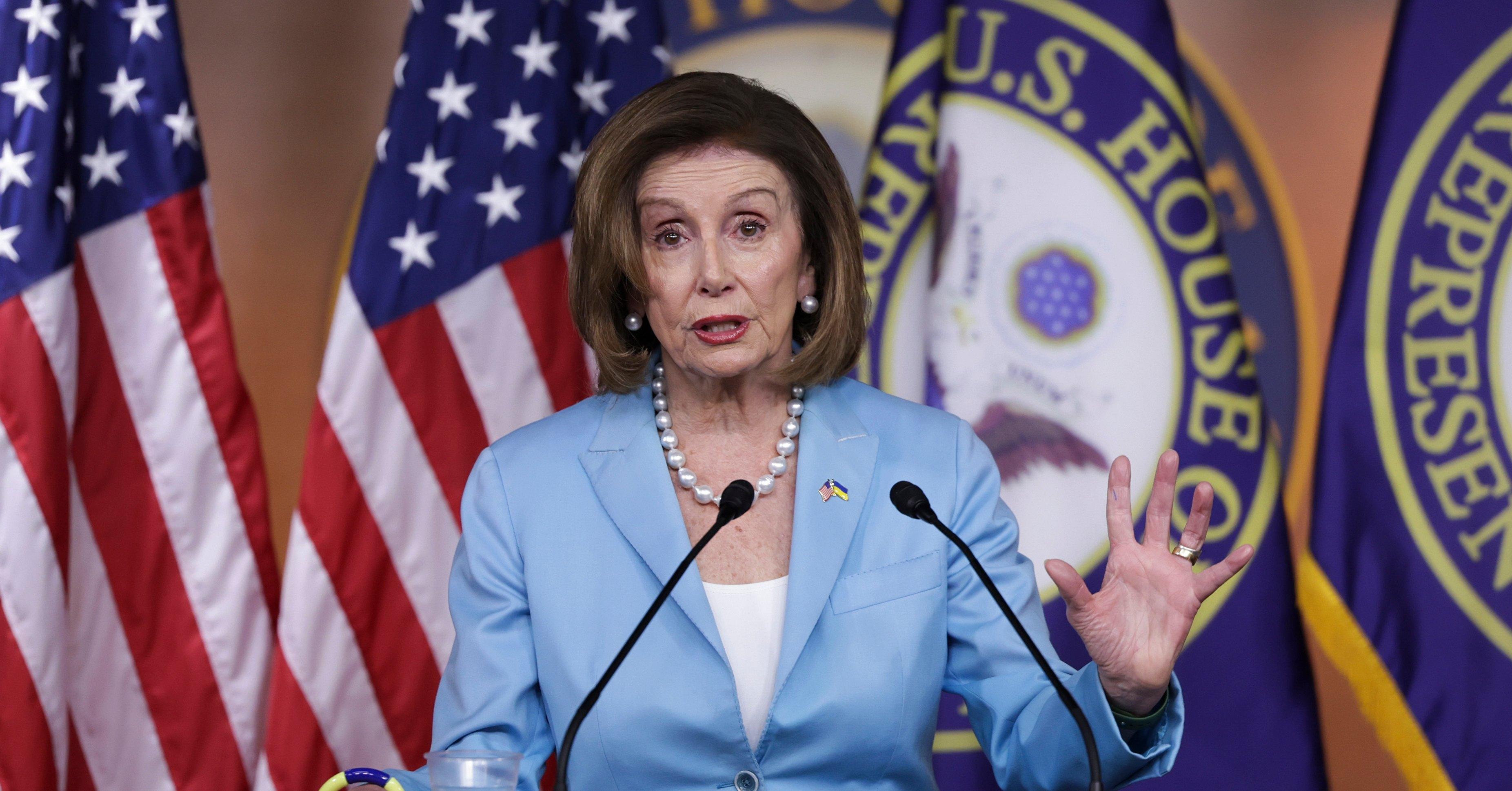Will the President's New Plan Put Baby Formula Back on Shelves? Republicans Voted Against It
Published May 19 2022, 9:15 p.m. ET

Shelves with baby formula
When we all learned the Pledge of Allegiance in kindergarten, never once did we imagine that the republic for which it stands would be in shambles by the year 2022. President Joe Biden made his way into office during the 2020 election, only months after the onset of COVID-19. And two years into the pandemic, the U.S. is low on way more than just toilet paper.
In February, outlets reported a voluntary recall by Abbott Nutrition after four infants fell ill. Consumers later learned that several batches of powdered baby formula had been contaminated with an environmental bacteria. As a result, families have been subject to the nationwide baby formula shortage.
But recently, Congress introduced a bill that could potentially remedy the deficit. So, why did Republicans vote against it? Here’s what we know.

Woman holding baby formula
The House passed a $28 million bill to address the baby formula shortage.
On Wednesday, May 18, outlets confirmed that the Defense Production Act (DPA) — or HR 7790 — was passed by the House with a total of 231 votes. Thanks to the bill, the Food and Drug Administration will have access to a $28 million emergency fund to address the shortage and anticipate future disruptions in the market.
In addition, Biden launched Operation Fly Formula, which prompts the Department of Health and Human Services (HHS), Department of Agriculture (USDA), and the Department of Defense (DOD) to source baby formula from FDA-approved suppliers overseas.
While President Biden’s plan promises to end the shortage, Republicans aren’t so confident. So much so, that nearly 200 of them downvoted the bill.

Why did Republicans vote against the baby formula bill?
Republicans have been vocal about their concerns regarding the baby formula shortage — and the President’s perceived lack thereof. In the last weeks, they’ve urged President Biden to take action. But at least 192 of them weren’t happy about the President’s new plan.
Since the bill was passed, citizens and politicians alike have taken to social media to express their disappointment in the Republican party, who largely voted against the bill. Democratic California Congressman Eric Swalwell wrote in a tweet with more than 90K likes, “Imagine being so 'pro-life' that you are willing to vote against baby formula.”
Among the dozens of voters who were against the bill was House minority whip Steve Scalise, who penned a memo explaining his opposition. According to him, democrats can’t solve the country’s problems by “throwing additional money” at them.

Nancy Pelosi
“Instead of working with Republicans to find bipartisan solutions to address the issue, Speaker (Nancy) Pelosi dropped this legislation yesterday in hopes of covering up the administration’s ineptitude by throwing additional money at the FDA with no plan to actually fix the problem, all while failing to hold the FDA accountable,” the memo read, per The Hill.
The recently introduced Access to Baby Formula Act, on the other hand, was far less contested. Only nine republicans downvoted the bill, which would allow low-income families to have access to baby formula amid the shortage. Ultimately, the majority won and the House passed the bill with a total of 414 votes.